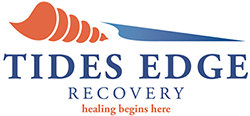Alcohol addiction is a much greater problem in the United States than many people realize. Alcohol-related deaths surpass that of even opioids, which we hear so much about in the media. In fact, nearly 88,000 people die from alcohol-related causes every year in the US. This is a huge problem that often gets swept under the rug because it’s not as glamorous as other addictions. But make no mistake, alcohol addiction is a very real and very dangerous disease. Somehow, however, many people manage to “get by” without major catastrophe, because they are what you call a high-functioning alcoholic.
What is a high functioning alcoholic, you may ask? That is an important question to consider. If you or a loved one is struggling with alcoholism, the first step to recovery is detox. It’s important to seek help from a professional detox center, and not try to quit on your own, which can be extremely dangerous. Get help from Tides Edge Detox. We offer alcohol detox programs at our alcohol detox center in Jacksonville, FL.
What is an Alcoholic?
Before we answer the question — what is a high-functioning alcoholic — we need to determine what an alcoholic is. According to Medical News Today, a person with alcohol use disorder (an alcoholic) is someone who has an uncontrollable urge to consume alcohol in spite of the negative consequences. So, a person may keep consuming alcohol even when they suffer because of it.
In the United States, approximately 15 million people have an alcohol use disorder, which makes this a widespread problem. And, it’s not just a problem for the person with the disorder. It also takes a toll on their loved ones.
What is a High-Functioning Alcoholic?
There are different types of alcoholics, including those who are high-functioning. This means that they may not show all the typical symptoms of alcoholism. They may be able to keep their job and perform well at work, for example.
But just because someone is high-functioning doesn’t mean they aren’t an alcoholic. They may be able to hide their problem from others, but that doesn’t mean the addiction isn’t there. In fact, a high-functioning alcoholic may be in more danger than someone who is not able to function as well. This is because they may not realize they have a problem and continue to drink, which can lead to health problems or even death.
Some people drink alcohol every day, but they are still able to function quite well in society. In other words, they manage to hold down a job. Somehow, they don’t let their habit interfere with getting to work on time. In addition, they are careful not to drive under the influence, thereby avoiding car accidents and tickets.
Maybe they just drink during specific times after work each night. However, even if they can function in society without a big problem, they still rely on their daily fix of alcohol. So, while people who are functioning alcoholics may not overdose from alcohol poisoning or may not get into a drunk driving accident, they are still killing their bodies little by little.
When you think about what defines a high-functioning alcoholic, just remember, the person may seem to be functioning on the inside, but their body is still dependent on alcohol. That means if they try to quit drinking abruptly, they will experience withdrawal symptoms. However, through an alcohol detox program, they can get through the withdrawal.
Quit Alcohol with Tides Edge Detox
At Tides Edge Detox, we help people who are functioning alcoholics. Our goal is to help ease the symptoms of alcohol withdrawal, which can be quite difficult to deal with. Through our detox center, you can overcome alcohol addiction and find fulfillment in life. Some of the different addictions we treat include:
- Alcohol addiction treatment program
- Cocaine addiction treatment program
- Heroin addiction treatment program
- Opiates addiction treatment program
Don’t let an alcohol use disorder hinder your future happiness. Now that you know what a high functioning alcoholic is, it’s time to seek quality treatment at Tides Edge Detox. Contact us at 866.723.3127, and we’ll walk with you along the road to recovery.









